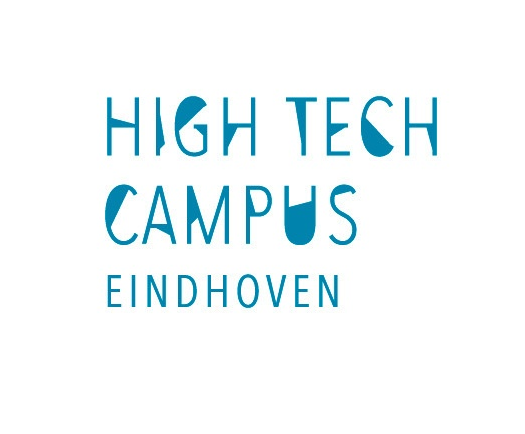


Axelera has recently joined the AI Innovation Center at High Tech Campus Eindhoven. The company is designing chips for AI on the edge with the aim to revolutionise the field and make AI accessible to everyone. They picked up an impressive 10 million euros in their seed investment round. We talked to CEO Fabrizio del Maffeo about their technology, as well as job loss, privacy and the moment computers will outsmart humans.
Axelera joined the AI Innovation Center with a clear mission. Their goal is to become a pillar in the development of AI in the Eindhoven region by building a strong community with other companies in the Center and deliver real solutions in applied AI. “We are not here to get, but to give,” says CEO Fabrizio del Maffeo. “The Eindhoven area excels in fields like chip design, but it’s late in AI development. Still, I see great potential here and although we are a startup, I do believe we have the capacity to push the province of Brabant forward to be a large, worldwide player in AI, like they already are in medical and automotive.”
Del Maffeo likes to think big. In 2019 he was hired by the Bitcoin mining unicorn Bitfury to develop a separate AI branche for the company. Two years later Axelera was founded as a Bitfury spin-off, picking up 10 million euros in seed investments from Bitfury and institutional investors like the Dutch deep-tech investment fund Innovation Industries and the Belgian VC imec.xpand. He opened offices in Zurich, Leuven and Eindhoven and got together a team of the best engineers and researchers from imec, Qualcomm, Google, IBM and Bitfury with the ambition to build an AI chip for edge devices that will revolutionise the field through high performance and efficiency at much lower costs.
“In recent years AI has started to spread from the cloud to the edge, which means the computer is in close proximity to the sensor”, Del Maffeo explains. “Your phone is an edge device, just like a car is nowadays with all the software running inside it, as well as most medical machines in the hospital. The AI networks running inside them work very differently from traditional computing. The market needs chips that optimise this new way of data processing with AI, but large chip manufacturers are not designing them. We are building a chip that can deliver ten times the performance of a standard video chip at a fraction of the cost and power consumption.”
Mindlessly scanning products
Del Maffeo expects his team to have the first prototypes ready at the end of this year and to introduce the finished product in the second half of 2022. One of the first markets Axelera has targeted is retail, where its AI chips can be used for automatic checkout systems. Automatic checkout is an innovative shopping experience championed in 2018 by the Amazon Go stores in the US, where smart cameras in the store register the items the customer picks up from the shelf. Through a link to his or her smartphone the items are automatically deducted from the customer’s bank account when he or she leaves the store. “You don’t have to stop at the cashier anymore”, says Del Maffeo. “We strongly believe that job has become obsolete.”
Del Maffeo feels that job replacement by AI is a foregone conclusion, but he sees this as something positive. “AI will only cut out those jobs with very little value, like the cashier. Human beings should not have to spend their time mindlessly scanning products all day. Instead, it’s an opportunity to do something else that brings more value, to elevate ourselves to the next level. AI will enable a completely new level of service that requires new expertise. The worker of the future will be a computer expert.”

Who owns our data?
Del Maffeo also sees Axelera’s chips being used in the medical, robotics and automotive markets, where they can reduce costs and make innovations more accessible to all players in the field. More controversial is the market of security and video surveillance in cities. Del Maffeo sees use cases for Axelera’s AI chips in smart cameras that can register available space in parking lots in real-time, for instance, and also give alerts when accidents or crimes happen.
This inevitably raises the question of privacy. How much do we allow the AI to know about us, who owns the behavioural data that the AI generates and what happens with it? To Del Maffeo these are extremely important questions, to which he holds an equally strong position. “We should be the owners of our own data”, he says empathically. “Technology like blockchain can facilitate this and give us the choice to sell our data for money, if we wanted to, or to just stay anonymous. I don’t see much progress there and that makes me sad. I would expect the European Union to impose regulations that protect our privacy and allow us access to more diverse information. Now we are stuck in our filter bubbles, seeing only what we want to see. It creates a lot of polarisation in opinions and behaviour.”
Criminal behaviour
Del Maffeo believes AI on the edge will help to safeguard privacy. The problem with data collection by companies and governments, he says, is that the data is stored on big central servers in the cloud. This ‘centralisation’ of data gives the collectors of it the power to do with it as they please. Del Maffeo: “I don’t like these big servers where the entire video of my life is stored. But AI on the edge can analyse data locally, without having to store it in some central cloud. The chips may still recognise it is you, but they do not send a picture of you to the cloud. They only recognise what you want them to recognise and you let them send only the data that is relevant, which is then encrypted.”
A smart camera that tracks foot traffic, for example, will only send the number of pedestrians passing by to the cloud server, not pictures of individual faces. It would send actual footage only when a shoplifter comes running by or a fight breaks out. “I’m in favour of cameras everywhere", Del Maffeo adds, “but only cameras that observe bad or criminal behaviour and ignore everything else.”
Singularity
Apart from its many advantages Del Maffeo is also aware of AI’s darker side. He is a firm believer in the singularity, the moment that computers will become ‘superintelligent’ and outsmart and outperform humans in every field. According to Axelera’s CEO this is not a matter of if but of when. “Of course we are not there yet, but when we reach the tipping point the evolution of AI will be so fast that we cannot stop it anymore. Many people underestimate the impact of AI by saying that superintelligence will never happen. That’s a completely wrong approach in my view. We should consider it and we should react appropriately and research how we could potentially contain AI, so it doesn’t go rogue.”